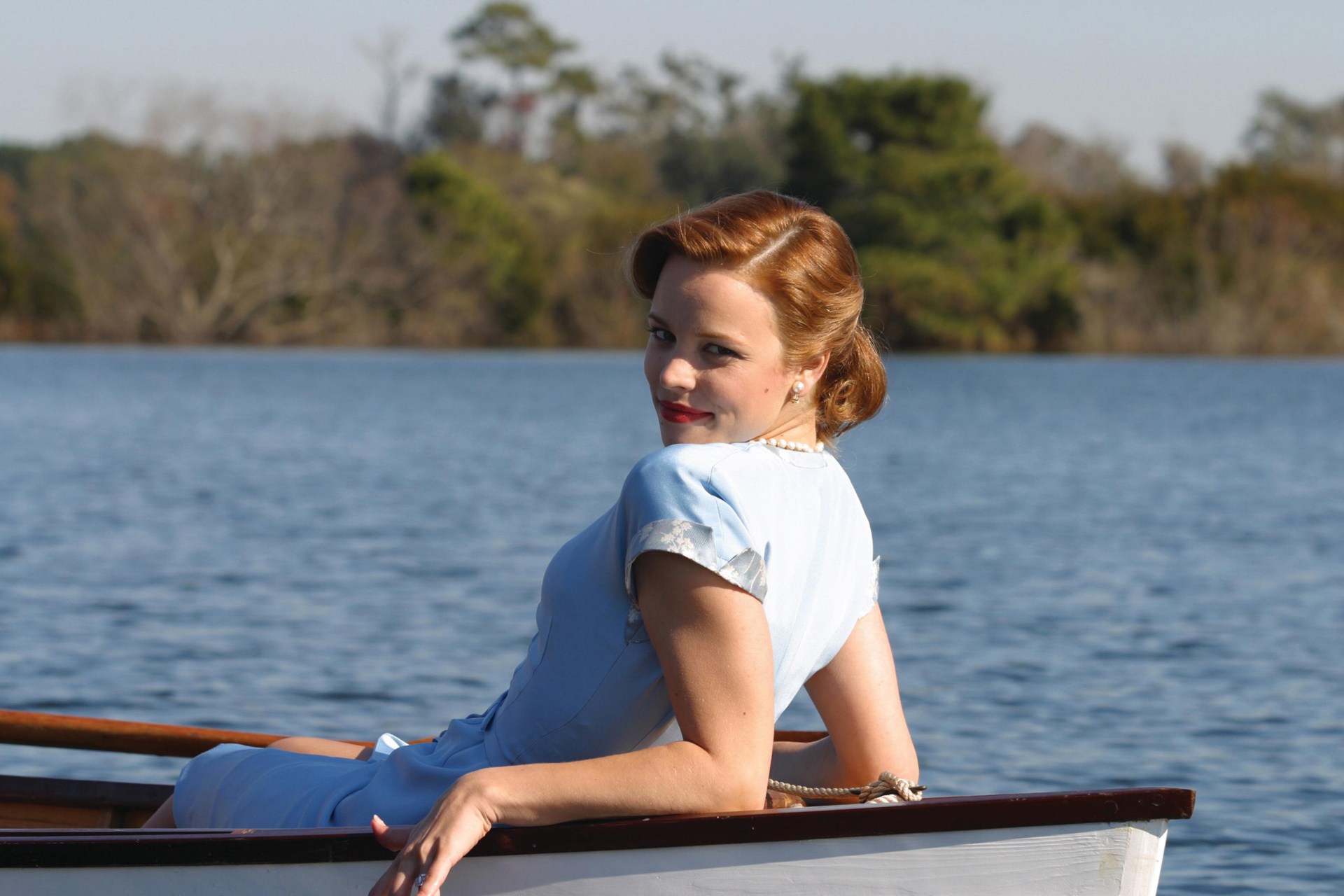Yesterday on Twitter, Netflix announced that Nicholas Sparks’ weepy classic The Notebook is coming to the streaming service for the first time on March 15. Nick Cassavetes, son of famed indie filmmaker John Cassavetes, is inexplicably the director of the film (as far from his daddy’s cinéma vérité as you could get—but maybe that’s the point), and The Notebook is the rare rom-drama that even men admit to watching and sobbing over, sometimes with the intention of impressing a girl who also loves it (or seducing her). It’s based on a novel by Nicholas Sparks, whose book also inspired Mandy Moore’s manic-pixie-dying-girl turn in A Walk to Remember.
This is also the film that should have made Rachel McAdams a household name, spirited away from supporting roles into glorious stardom at the level of a Natalie Portman, or a Jennifer Lawrence post–Winter’s Bone. The Cassavetes swoonfest launched a similarly mellow-tempered (and Canadian) Ryan Gosling to the forefront of young girls’ libidos in the 2000s; Rachel and Ryan even dated post-filming, though during filming they hated one another. But McAdams has yet to receive the kind of accolades her ex enjoys.
Rachel might be a slow bloomer (one year ago, she gave birth to her first child at age thirty-eight), or just unconcerned with the limelight. Her core qualities don’t elicit immediate excitement: She’s withholding in interviews, famously private, and still lives in Canada. She’s not a particularly scintillating talk show guest, though she does seem incredibly nice (again—Canadian). McAdams is also somewhat of a hippie; starting an eco-friendly lifestyle website, practicing Kundalini yoga, eating “green” and local, preferring to ride a bike rather than drive a car.
In the same year as 2004’s The Notebook, McAdams was the best part about Mean Girls, a movie cobbled together from best parts. Donning an icy blonde wig, McAdams nailed the persona of popular bitch Regina George, whose cruelty held a sexual appeal. Actually, she played a high schooler in both breakout films, though twenty-five at the time. McAdams later scored big roles in Game Night, Wedding Crashers, Spotlight, Midnight in Paris, Red Eye, To the Wonder, and True Detective, all success stories; but she’s starred in her fair share of romantic flops too, films that never neared The Notebook’s staying power or warmth (About Time, The Vow, Morning Glory, The Family Stone, The Time Traveler’s Wife).
McAdams’ most daring role to date came last year when she joined forces with the darkly sensual Rachel Weisz for Sebastián Lelio’s Disobedience, a tale of forbidden love between two girlhood best friends in an insular Orthodox Jewish community. Weisz and McAdams’ sex scene—in which Weisz spits directly into McAdams’ mouth, something that sounds gross but is somehow very tender—elicited the praise of many (horny) film critics.
No actress has ever looked so right in ’40s fashions, cinched waists and feminine dress cuts and strawberry blonde curls.
Still, The Notebook remains McAdam’s triumph. The movie works—not even works, but soars, as if on the backs of those mournful geese flying across a lake in the dumb opening scene—solely because of her. Rachel has said that when she read the script, she couldn’t stop crying; and apparently the whole room was crying during her audition, too, which can still be found on YouTube, with Gosling reading his own lines off-screen.
They’d already cast Gosling as Noah, and needed someone who could match his quiet intensity with flash and grit; who could counter his dry, wooden delivery with impassioned shouts; who was beautiful but womanly, believable both as a reckless, virginal teen and as an adult woman in the bloom of her life. The film’s main framing device is its narration by an elderly man (who is Noah, now a senior citizen) telling a love story to his friend at the nursing home (who turns out to be Allie, though she has Alzheimer’s and cannot remember him until the very end, when there’s a miraculous moment of clarity). Gena Rowlands plays old Allie, a believable choice for an aged McAdams; she’s also the mother of director Cassavetes.
As junior Allie, McAdams is a girl spending her last summer before college in 1940s South Carolina, where she meets and falls in love with a listless local (Noah) her parents don’t approve of. In their adolescent infatuation, McAdams flings herself at Gosling, uninhibited; Allie first runs from Noah and then runs to him, spits angry words, cries uncontrollably, and loses herself to torrents of lust, sometimes in the same scene (you know—the rain-drenched one). At one point, she even beats him up (mildly; he’s not hurt) when he grows cowardly and tries to break up with her.
No actress has ever looked so right in ’40s fashions, cinched waists and feminine dress cuts and strawberry blonde curls; and while Gosling has a steady quality and a nice, long face, he is merely the match to McAdams’ flame here, lighting up only when she’s opposite him.
My favorite scene comes near the end of the story, when Noah is waiting at home for Allie to decide between her faithful fiancé Lon and Noah, the man she’s just had an affair with after finding years’ worth of evidence that he still loves her. Noah is sleeping but wakes at the sound of a car outside, and runs onto the balcony to see Allie getting out of the driver’s side carrying two suitcases. It’s a dramatic moment—one in which Allie is supposed to reveal her ultimate decision—but McAdams just looks up at Gosling, who is draped in a fuzzy blanket, and shrugs. It’s a wry and funny way of choosing him, of giving in to her instincts because she’s too tired to make sensible choices anymore. Only McAdams could pull it off. FL







